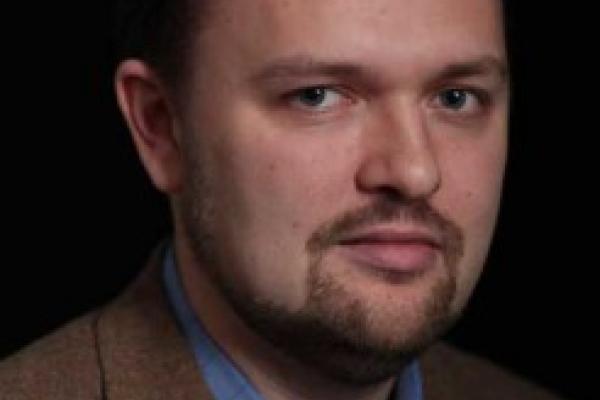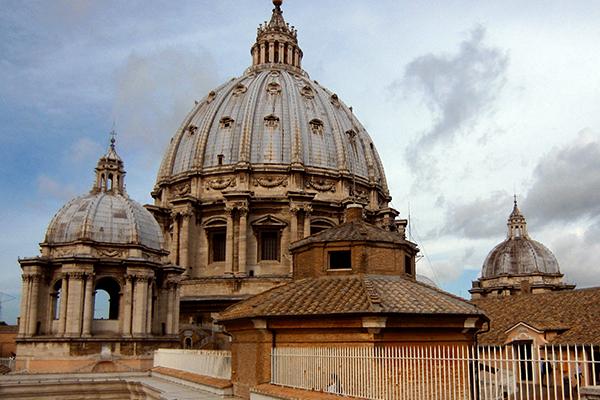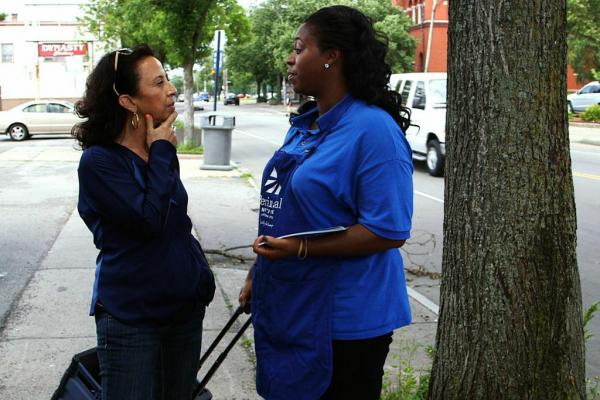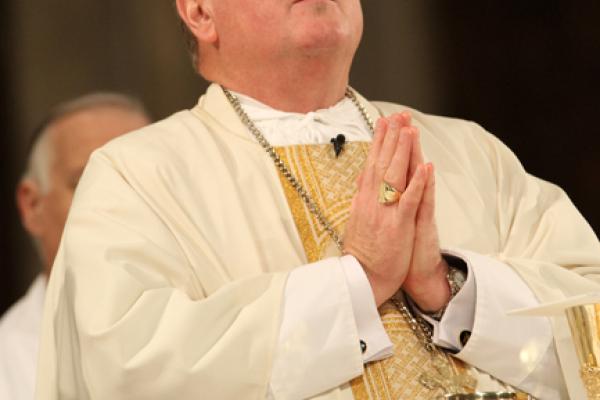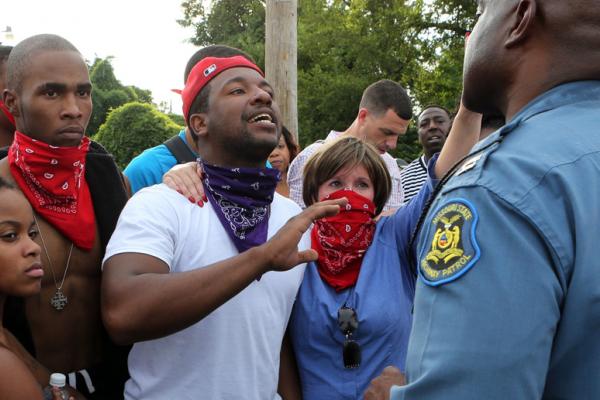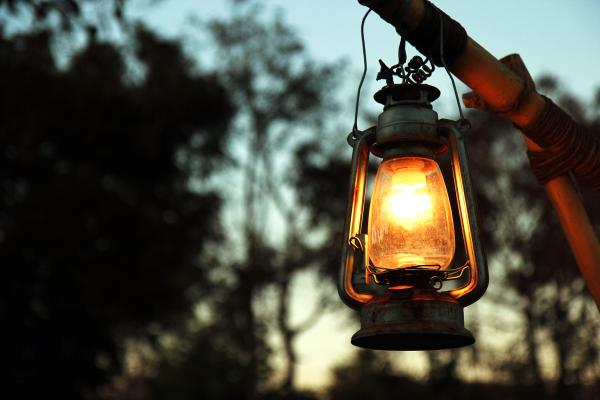“The reason I speak to them in parables is that ‘seeing they do not perceive, and hearing they do not listen, nor do they understand.’ With them indeed is fulfilled the prophecy of Isaiah that says: ‘You will indeed listen, but never understand, and you will indeed look, but never perceive. For this people’s heart has grown dull, and their ears are hard of hearing, and they have shut their eyes” (Matthew 13:11-15)
Humans shut their eyes to truth.
This week, the Intergovernmental Panel on Climate Change released the final installment of its three-part synthesis report on climate change. According to Rajendra Pachauri, the chairperson of the IPCC, this report is the “strongest, most robust, and most comprehensive analysis” to come out of the IPCC, which has been tracking climate change since 1988. Yet, there are still some who are hard of hearing.
The data that lies within the report is nothing completely new: climate change is happening, humans are responsible for climate change, and fossil fuels are severely damaging our levels of CO2. So, what is different about the newest installment of the IPCC report?
The emergence of one word: irreversible.
Many conservative Catholics have long viewed Pope Francis with suspicion thanks to his effort to shift the church’s focus away from a culture war agenda and toward a more welcoming approach and a greater emphasis on serving the poor.
But last month’s controversial Vatican summit on the modern family, with the push by Francis and his allies to translate that inclusive view into concrete policies on gays and divorced and remarried Catholics, for example, seems to have marked a tipping point, with some on the right raising the specter of a schism — a formal split that is viewed as the “nuclear option” for dissenters.
New York Times columnist Ross Douthat, a Catholic and a conservative, crystallized the peril in an Oct. 25 column warning the pope not to “break the church” to promote his goals, saying that if Francis continues to alienate conservative Catholics it could lead to “a real schism.”
Douthat had raised the possibility of “an outright schism” earlier this year, as well, and his warnings have been echoed by a number of other church leaders and commentators. The anxiety on the right has also drawn increasing media speculation about the possibility of conservatives splintering off.
So is a schism, with its echoes of medieval debates and heretics burning at the stake, a realistic possibility? And can an independent Catholic church be successful in the modern world?
The Vatican’s top ethicist condemned Brittany Maynard’s decision to end her life, saying there was no dignity in her physician-assisted death.
Maynard, 29, took a lethal prescription provided by a doctor under Oregon’s death-with-dignity law. She died in her bed Nov. 1 after leaving family and friends a final farewell message. Earlier this year, she was diagnosed with an inoperable brain tumor and given only months to live.
“We don’t judge people, but the gesture in itself is to be condemned,” said Monsignor Ignacio Carrasco de Paula, head of the Pontifical Academy for Life, which is responsible for ethical issues in the Catholic Church.
“Assisted suicide is an absurdity,” Carrasco de Paula told the Italian news agency ANSA. “Dignity is something different than putting an end to your own life.”
Maynard became a media sensation as a video she posted on YouTube was viewed 9.8 million times. Her death made her an appealing young face for the right-to-die movement.
Like other citizens of our free land, Christians tend to divide sharply, predictably, and with heated language.
We disagree about almost everything, from cultural norms to attitudes toward wealth and power; from personal behavior to what Jesus intended.
To judge by our blog posts, our comments, our letters to the editor, and our remarks in public, we are appalled at what other Christians believe. How can this person have that viewpoint and still call himself a Christian? Does she not know that her words heap burning coals on her own head?
In view of our fiery words, you’d think we had explored the extremes of Christian faith and were shouting across a vast, unbridgeable chasm. In fact, we differ within a narrow spectrum, like those who debate Coke vs. Pepsi.
That narrow spectrum tends to be far removed from what Jesus actually said, did and expected. We argue about things that don’t matter because we can’t stand the things that do matter. We argue about sex, for example, in order to avoid the topic Jesus actually addressed, namely, wealth and power.
And when we do address wealth and power, we tend to affirm the individual’s right to have as much as they can get, even though Jesus said no such thing.
“Behind every number, there’s a story.”
That’s what inspires Maria Hinojosa, host and executive producer of NPR’s Latino USA, to investigate the dramatic demographic changes taking place in the United States in her new PBS show, America by the Numbers. In a nation that will be majority non-white by 2043, Hinojosa’s storytelling focuses largely on the oft neglected experiences of immigrants and people of color.
Unafraid of what mainstream media too often neglects, Hinojosa’s America by the Numbers brings to life the tensions at the heart of a rapidly diversifying America. She examines not only the unjust treatment of underrepresented communities by the American government but also the cultural conflicts inherent within these communities. For Hinojosa, the conflicts between tradition and progress, community and individuality, white and non-white are not to be avoided, but rather spotlighted.
Last week, Sojourners chatted with Hinojosa about America by the Numbers and the role the media can play in welcoming these demographic changes. This conversation has been lightly edited for length and clarity.
Last week I spent a few days in Rome with, among others, Tony Jones. As someone who hasn’t ever been to Rome, it was particularly helpful for me to have a Christian historian along. It’s easy enough, having seen one amazing display of ruins after another, or cathedral after awesome cathedral, to lose some perspective. So along the way, Tony would stop and point out the historic significance of various landmarks. Then of course, we’d go grab a bourbon and talk.
Both of us, at one point or another in the week, thought of the Monty Python scene from Life of Brian, in which the disgruntled rebels exclaim, “What have the Romans ever done for us?” So of course, some wise guy in the group starts rattling things off, like the aqueducts, roads, education, and so on.
So this led to a minor debate between Tony and me about the benefits of empire. Now, keep in mind that Tony is never one to pass up an opportunity to serve as the antagonist, but his argument as outlined in his blog post cheekily titled “In Praise of Empires,” is that it’s en vogue to trash empire, both present and past.
To put a finer point on it, we chatted about whether Constantine, the Roman emperor responsible for establishing the Nicene Creed, was an ass-hat.
One of my days last week started with my usual wake-up routine — sitting in a chair, sipping my first cup of coffee, checking up on Facebook posts — when one of them made me smile.
A long-time friend in Cleveland has endured 250 days of chemotherapy and radiation. He’d just received the results of his latest scan: No trace of cancer anywhere. Yes! Chuck noted that “the collateral damage has been great” from all the chemicals and radiation. He now stumbles around and has trouble typing, both temporary conditions. But he’s cancer-free.
Stumbling, yet still standing.
The Archdiocese of New York, with the second-largest Catholic population in the country and an unparalleled place in U.S. church history, is shrinking: Cardinal Timothy Dolan on Nov. 2 announced that nearly a third of the archdiocese’s 368 parishes would be merging, and some would close.
“This time of transition in the history of the archdiocese will undoubtedly be difficult for people who live in parishes that will merge,” Dolan said in a statement. “There will be many who are hurt and upset as they experience what will be a change in their spiritual lives, and I will be one of them.”
The reorganization was years in the making and some downsizing appeared inevitable, as happened in the last round of cutbacks, in 2007. While the sprawling archdiocese is still home to 2.8 million Catholics, fewer of them are attending Mass or Catholic schools, and costs are rising. The archdiocese said it is spending $40 million a year to prop up failing or redundant parishes.
Still, the extent of the changes, the largest in the more than 200-year history of the archdiocese, upset many Catholics, especially in neighborhoods where waves of immigration had built and revived parishes across the decades.
“I feel very sad; I was baptized here,” Sonia Cintron, 75, a member of the Church of the Holy Rosary in East Harlem, told The New York Times. “Here we’re family; we loved each other.”
Some parishioners have vowed to try to keep their churches open through petitions and protests.
The first time the public heard the name Renita Lamkin was probably the day she was shot.
In early August, four days after Michael Brown was killed by Officer Darren Wilson, Lamkin, a pastor, stood with Ferguson protesters, attempting to mediate. Police had warned the crowd to disperse and in an effort to buy a little time, Lamkin shouted, “They’re leaving!”
“That’s when I felt a pop in the stomach,” Lamkin said of the rubber pellet that hit her. The pellet left a ghastly wound — large, deep and purplish — and created a social media frenzy.
Tweet after tweet showed Lamkin, 44 and white, wearing a T-shirt with an image of a cross that she lifted up just slightly to show off the ugly bruise.
Lamkin said she didn’t really have a plan when she ventured out to Ferguson but that “the whole being shot thing was probably the best thing that could have happened.” The injury had cemented Lamkin’s role in the struggle for racial equality.
“They say, ‘You took a bullet for us.’ My sense is …We’re in this together, and I was playing my role,” Lamkin said.
What does the Christian life consist of? What does God expect from us?
Here’s Jesus’ answer, according to Matthew’s Gospel: “Wait faithfully. Together. Or else.”
Sure, that isn’t an exact quotation, but it sums up — again, according to Matthew — what Jesus says to his followers when he instructs them about how they should live after he has departed from this earth.
Let me address the “or else” part first. That usually attracts the greatest attention.
In the Gospel according to Matthew, Jesus seems a little infatuated with judgment and retribution. At the conclusion of each of the four parables he tells within Matthew 24:45-25:46, the section that comes just before the plot to seize and kill him springs into action, certain characters don’t fare so well. They are cast out to where there will be “weeping and gnashing of teeth,” locked out of a banquet by the guy who presumably invited them in the first place, tossed into “outer darkness,” or punished in “eternal fire.” Along with the book of Revelation, Matthew’s Gospel has generated a large share of distress through the centuries.
Are these promises about judgment authentic warnings spoken by an uncomfortably stern Jesus, or are they brutal revenge fantasies put into his mouth by ancient Christian communities that had lost the ability to trust their own members or to put up with differing opinions and practices? We may never know.

